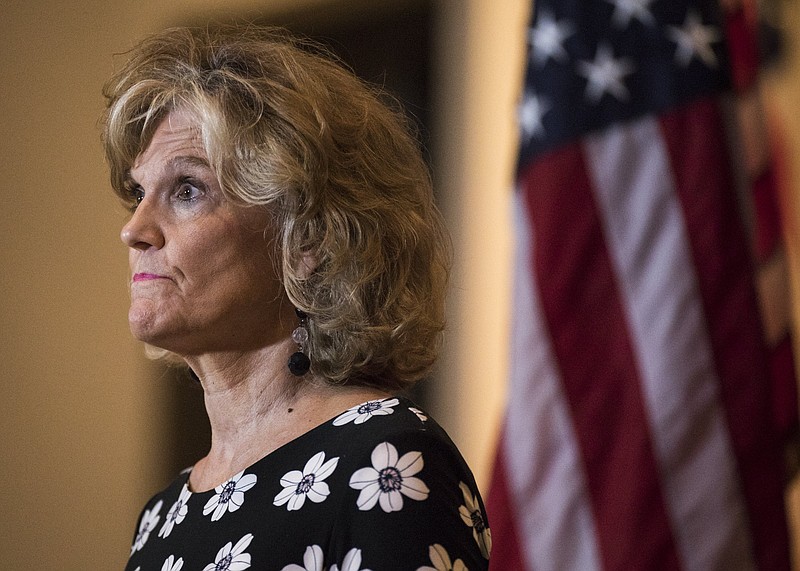The Chattanooga area has reported its second child death from coronavirus, a Hispanic girl under the age of 10, as doctors and health officials put out a plea for plasma donations for those who have recovered from the global pandemic.
The newly reported death is the 29th in the county and the second of a child under 10. The girl who died had no underlying health conditions. Even before the death, Chattanooga gained national attention for being the No. 2 locale in the nation for growth in its coronavirus death rate.
The last time the Chattanooga area reported a child death was in April, and the child had an underlying health condition.
The Hamilton County Health Department on Tuesday reported 35 new COVID-19 infections, bringing the total to 2,209. There are now 35 people hospitalized with the virus, and 970 people have recovered.
During the Tuesday afternoon news conference, Dr. Liz Culler, medical director at Blood Assurance, said a single donation could save up to four lives.
The blood of people who have recovered from COVID-19 contains antibodies used to fight the virus. Giving convalescent plasma from individuals who have recovered from the virus to people now fighting it has shown some signs of being effective in treating severe but not critical cases of the coronavirus, said Dr. Jigme Sethi, a doctor with Erlanger Health System.
Erlanger is now treating 20 people with plasma as part of a Food and Drug Administration trial of the treatment that is seeing "some success," Sethi said.
"We also know that some of the patients that got convalescent plasma, their viral burden of COVID-19 reduced dramatically in a few days and by day three they were virus negative. So it seems that it has a basis to work and help us overcome the infection."
Plasma is the clear liquid portion of blood that remains after blood cells, platelets and other components are removed. It is often collected for therapies for other conditions and has been used to treat other infectious diseases- such as H1N1 influenza, SARS, MERS and even the 1918 flu pandemic- with varying results.
A person must be symptom free for 14 days to donate plasma with Blood Assurance, Culler said. If someone believes they had the virus but did not get tested, Blood Assurance will arrange for an antibody test.
"Through donating convalescent plasma, donors can have a direct impact on saving a life," she said.
Culler said there have been times recently when Blood Assurance has not had any plasma on hand, and administrators want to build up a stock for a possible spike in COVID-19 infections in the fall. The plasma will last for up to 14 months if frozen, Culler said.
Donating plasma is one way the community can help prevent more deaths, said Health Department administrator Becky Barnes.
"Every death from COVID-19 is tragic but the death of a child under 10 is especially sad," Barnes said. "As we share this family's grief, let us resolve as a community to do everything we can to stop the spread of the virus in our community and prevent further deaths."
To contact Blood Assurance about donating plasma, call 423-756-0966.
Contact Wyatt Massey at wmassey@timesfreepress.com or 423-757-6249. Follow him on Twitter @news4mass.
